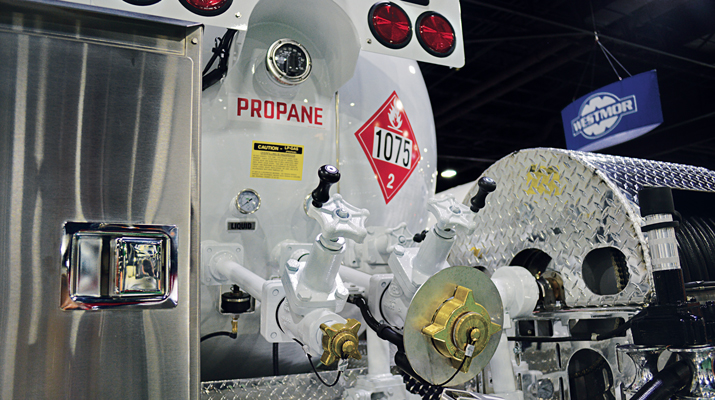Summer housekeeping for propane retailers
Though snow is still a slight possibility in some parts of the country, the busy season is pretty much over. Now the industry changes focus.
We shift to cylinder exchange, and picking up and servicing accounts takes a more prominent role. So, let’s spend a moment thinking about what can be done to make customers safe and protect your company from claims and litigation.
When it comes to cylinder exchange sales, a lot is now done through exchange programs. C-stores and other distribution centers have their own procedures in place to make these transactions safe, but if you supply cylinders to any outlets that run cylinder exchanges make sure your distributor also has safety procedures.
This would include policies that do not allow cylinders in the commercial establishment, as well as those that provide a means for sorting returned cylinders and dealing with leaking cylinders. You also want to be named as an additional insured on their insurance policies for potential liability exposures. You will want to check the storage racks at these sites to be sure they are in good shape and in a safe location.
If your company is in the practice of refilling cylinders, it is important that cylinder recertification dates are identified. If a cylinder is not within certification, it cannot be filled. Have a designated place to set it aside.
Only recertify a cylinder if it passes visual inspection and keep accurate records of recertification.
Based on a recent industry study, refilling cylinders, especially in bulk, can create potential risk from static discharge. Be sure you employ static-reducing practices in the flooring of your facilities, as well as the clothing and safety equipment worn by your refillers.
Be sure to always conduct a visual inspection of the cylinders for rust, dents, gouges or excess corrosion. A spot often missed is the collar under the cylinder where the cylinder meets the collar at its base. Rust tends to accumulate here. Tip the cylinder over and check for excess corrosion or other signs of wear.
Cap the cylinder when done filling. Also, update the warning sticker on a cylinder if it is so worn or damaged that it is not legible.
Summer is also the time to check and update cylinders and tanks at the bulk plant or in the field. Are the regulators up to date and functioning well? Do tanks need to be sand blasted and repainted? Are there installations that might need to be reconfigured due to modifications, such as an addition to a home that encroaches on the setback requirements? Has a homeowner added appliances, thereby requiring a larger tank? Deal with these issues methodically as the summer progresses.
Disorderly paperwork often causes problems. Summer is a good time to look at your open customer files and make sure all of your required documentation is there. Do you have customer agreements? Do they limit your responsibility to the tank and first- or second-stage regulator? Do you agree the customer is responsible for the gas lines and appliances inside the home? Do you have leak checks and system checks for all of your customers? Is the paperwork filled out completely? Have both the serviceman and customer signed the document? Where are you seeing most of your interruption-of-service or out-of-gas calls? Is there a pattern?
Is there something you can do to reduce these occurrences? Keep in mind interruption-of-service and out-of-gas calls account for a large percentage of explosions.
Do you have delinquent customers? Are they customers you want to keep or is it best to part ways? Carefully sort through these customers during the summer months.
As for training, keep in mind there is a three-year refresher requirement for training in areas where your employees work regularly. Now is the time to complete that training and also to have it documented.
Online training is so prevalent there is little excuse not to get the training done and your folks current. Even after the written and video training, nothing can replace on-the-job experience to document that the lesson has actually been learned. So, don’t forget that part of the process.
Summer is just around the corner. It is a time to pause, refresh and get the house in order. Work done along these fronts will pay substantial dividends with satisfied customers, well-trained employees and fewer accidents.
John V. McCoy is with McCoy, Leavitt, Laskey LLC. His firm represents industry members nationally. He can be reached at jmccoy@MLLlaw.com or 262-522-7007.















